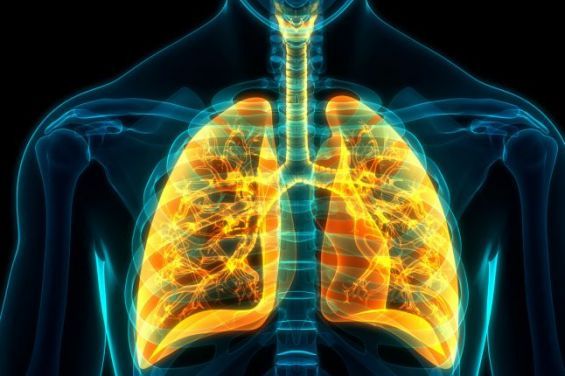Hidden lung abnormalities were found in patients who reported persistent Covid-19 symptoms months after an infection. A study led by an Oxford University team reveals that the use of conventional scanners could not detect the damage done to the lungs of these patients.
Using a new scanning technology, which relies on Xenon during MRI scans, researchers managed to identify damage to the lungs that was not apparent when relying on other types of scans.
Developed by a research group at the University of Sheffield, said scanning technique helped show that the unseen lung damage is linked to what has been referred to as «long Covid», where people report long-lasting and persistent symptoms months following the initial infection.
The findings suggest that 8 out of 10 Covid-19 patients had persistent shortness of breath and tiredness three months after being ill with the coronavirus, although they were not admitted to intensive care or required ventilation. Also, conventional scans had found no problems with their lungs, BBC wrote.
The same patients, according to the study’s results, were found to have lung damage, with air not flowing easily into their blood, when undergoing the Xenon scan.
Lung damage and long Covid
Professor Fergus Gleeson, who is leading the research, said that he was «expecting some form of lung damage, but not to the degree that we have seen».
«The risk of severe illness and death increases markedly for the over 60s. But if the trial discovers that the lung damage occurs across a wider age group and even in those not requiring admission to hospital, it would move the goalposts», Pr. Gleeson said.
As for the link between long Covid and lung damage, Dr Shelley Hayles from the Oxford University team believes that almost 10% of people who had Covid-19 «might have some form of lung damage, which is leading to prolonged symptoms».
«We're now at more than one and a quarter million who have been infected - and 10% of that is a lot of people», she said referring to UK Covid-19 cases, adding that «when medical staff tell patients that they don't know what's wrong with them and they don't know how to sort the symptoms out, it's very stressful».
Using the newly developed scanning technique, the British team is expected to carry further trials on Covid-19 patients. 100 people who had not been admitted to hospital and who had not suffered from serious symptoms will also have their lungs scanned to identify any abnormalities months after an infection.
In Morocco, as in other countries, several Covid-19 patients have reported prolonged and persistent coronavirus symptoms for months following their recovery. Most of the reported symptoms included fatigue, shortness of breath and the loss of smell and taste.





 chargement...
chargement...













